
The Free Press

Last week, the Supreme Court handed down a flurry of highly anticipated decisions. Two rulings in particular made a lot of news: one effectively ended affirmative action in American higher education; the other ruled that a Colorado web designer could refuse to create a wedding website for a same-sex couple.
The mainstream media’s reaction has been fairly unanimous: these are the sorry consequences of a conservative majority court. These two decisions have undone decades of precedent that helped historically disadvantaged students have a chance at the American dream, and have weakened gay rights.
When President Joe Biden was asked at a press conference last week whether or not this is a “rogue court,” he muttered in response: “This isn’t a normal court.”
Is that true? Is this court “not normal”? Or do these decisions actually reflect a legitimate reading of the Constitution?
On today’s episode of Honestly, I hosted three legal experts from different sides of the political aisle to help separate the facts from hyperbole.
Harry Litman is an attorney who has clerked for two Supreme Court justices, Thurgood Marshall and Anthony Kennedy. He is also a host of the podcast Talking Feds. Jeannie Suk Gersen is a professor at Harvard Law School and a writer for The New Yorker. She also clerked for David Souter, the now-retired Supreme Court justice. And Sarah Isgur is a columnist for The Dispatch and an ABC News contributor who clerked for the Fifth Circuit Court of Appeals and served as the Justice Department’s spokeswoman during the Trump administration.
I’d love for you to listen to the whole thing here. A little taste of our conversation is just below:
Is this really a rogue court?
BW: Let’s talk about the court’s term, overall. A reporter asked Biden if America was dealing with a rogue court, and he responded, “This is not a normal court.” What does that mean? Do you guys buy the idea that this is not a normal court?
SI: That line really bothered me because Joe Biden ran on this idea that he was going to bring back norms to the presidency after Donald Trump. Yet here he is, very much intentionally trying to undermine one of the branches of government when he doesn’t like their decision. Here are some fun facts from this term: 50 percent of the Supreme Court’s decisions were unanimous; 89 percent of the decisions had at least one liberal justice in the majority. Only 8 percent were decided with the six Republican appointees on one side and the three Democratic appointees on the other side. That means only fourteen cases last term were decided that way, and this term was the lowest number of straight ideological split decisions in the last six years. What is unfortunate is the order in which the decisions came out, because you had the unanimous decision on religious observance upholding the Indian Child Welfare Act; then the court rejected the challenge to Biden’s deportation policies from Texas and Louisiana, and rejected the independent state legislature theory that had been embraced by Trump’s allies. All of these decisions were much more in line with liberal values, yet you have the president saying this isn’t a normal court. Look, they struck down your student loan plan, but they uphold your immigration plan. That’s 50 percent—that would get you in the Baseball Hall of Fame.
JSG: Let me try to explain the perspective of a liberal lawyer. From the mid-1980s until a few years ago, when you thought about constitutional law and the Supreme Court, really controversial cases would be divided by a five to four decision. There truly was suspense because there was that swing justice, whether it was Sandra Day O’Connor or Anthony Kennedy. That’s what we’ve been living with since the 1980s. I don’t think it is wrong to say that what we thought of as normal for all of those decades is now no longer the case. But if Biden means the court is abnormal and illegitimate, then I don’t agree with that.
On diversity and affirmative action:
BW: Let’s talk about diversity. One side argues that without affirmative action, colleges won’t be able to meet their diversity goals. The other side seems to argue that perhaps racial diversity is an unworthy goal in the first place. Justice Thomas said this earlier in the case: “I’ve heard the word diversity quite a few times and I don’t have a clue what it means.” Justice Roberts argued that “the use of these opaque racial categories undermines diversity.” How do you understand the virtue of diversity in an educational setting?
JSG: We talk a lot about how diversity enhances the educational experience, and I think that’s pretty uncontroversial. You want some scientists and you want some mathematicians, and you want some people who want to do the humanities. And then race gets into it. When people explain why racial diversity is important, they don’t mean it’s important to have people with different color skin on campus. The defenders of racial diversity are often talking about what you bring to the table as an individual because of your experiences and your different perspectives. I personally think that the escape valve that the Supreme Court opinion by Justice Roberts provides to say, hey, nothing here says you can’t take into account the perspective that someone brings in terms of how race affected their lives and shaped their views or shaped their future—oh, that’s fair game. I think that that is the way that often defenders of affirmative action explain why diversity is important.
HL: Defenders of affirmative action will say it’s not enough to simply try to retranslate what different racial groups can bring to the table in terms of disadvantages. They do say that there is a way in which literally having racial diversity matters. The universities will just say this doesn’t look like America and it’s a problem. And I think we all agree that that’s a problem, and the question is how to combat it.
SI: I think this is part of the problem. We don’t all agree on the definition of diversity, and again, I think people of good faith can have different definitions of diversity. But what has been created of late is this idea of adversity being the definition of diversity. There’s a version of that going on culturally with these young kids, constantly thinking about their struggles and constantly thinking about ways they’ve been put upon, some of which aren’t really them. Their mom was a single mom who was an immigrant, etc. Like, that’s not your struggle, that’s your mom’s struggle. I want very much to find a way to define diversity where it takes into account that your parents paid God only knows how much for a college counselor and you went to the best prep schools and you got the same scores and the same grades as the kid who had none of that. Well, then, yeah, I think schools should be able to look at those two kids realistically about which one might add more to their class.
On free speech and gay rights:
BW: Jeannie, when Axios, PBS, CNN, and The Daily Beast all characterize this ruling as one that “limits LGBTQ protections,” is that inaccurate?
JSG: I wouldn’t go that far, but it is inaccurate to say this decision means it’s fair game to turn gay people away from stores because you don’t want to do business with them. I also don’t think this was an easy case. A lot of it depends on who the specific people are and what religions they are. Like, if you ask is it okay for a kosher caterer to say “I am not going to cater your wedding because this is an intermarriage between a non-Jew and a Jew”? And if the kosher caterer says, “I will do any other event that you want to do, but I will not do an interfaith wedding because that’s just not something that I approve of.” I’ve heard of those situations and I’ve always thought of that as completely okay and plausible and within the free speech rights of the caterer. I think the sympathy shifts because this is about gay people.
BW: Harry, Biden said he’s concerned that this decision could invite more discrimination against gay Americans. Do you share that concern?
HL: The opinion is sort of like a loaded weapon. It’s accurate to say this is the first time in the court’s history that it has granted a business, open to the public, a constitutional right to refuse to serve members. The difference between her and an artist is that with an artist, it’s not open to the public, but website designers, manicurists, gardeners—they are people who generally hold open their business. Let me just do another hypothetical: a couple goes to another web designer and instead of being turned down for being a same-sex couple, they get turned down for being an interracial couple because they don’t believe in interracial marriage. Under this 303 Creative ruling, it is not indistinguishable.
JSG: I think that under this ruling, if someone’s making the claim that this is their religious belief and their religious belief says that. . .
HL: But it needn’t be religious, right? Under the opinion.
JSG: That’s true. It doesn’t need to be religious. It depends on how expansive your idea or the court’s idea is of what is expressive and what is not. There’s a version of this in which every decision ends up being a form of expression. For example, take all of us as writers and content producers. Do we want to be compelled to provide, say, our ghostwriting or editing services to somebody who comes to us and says, “Actually, I want to write a book that is a screed against gay people?” Do I want to be compelled to do that? I absolutely do not.
Read Free Press writer Rupa Subramanya’s piece “What Happens After the End of Affirmative Action?” here.
And to support more good faith discussions, become a Free Press subscriber today:




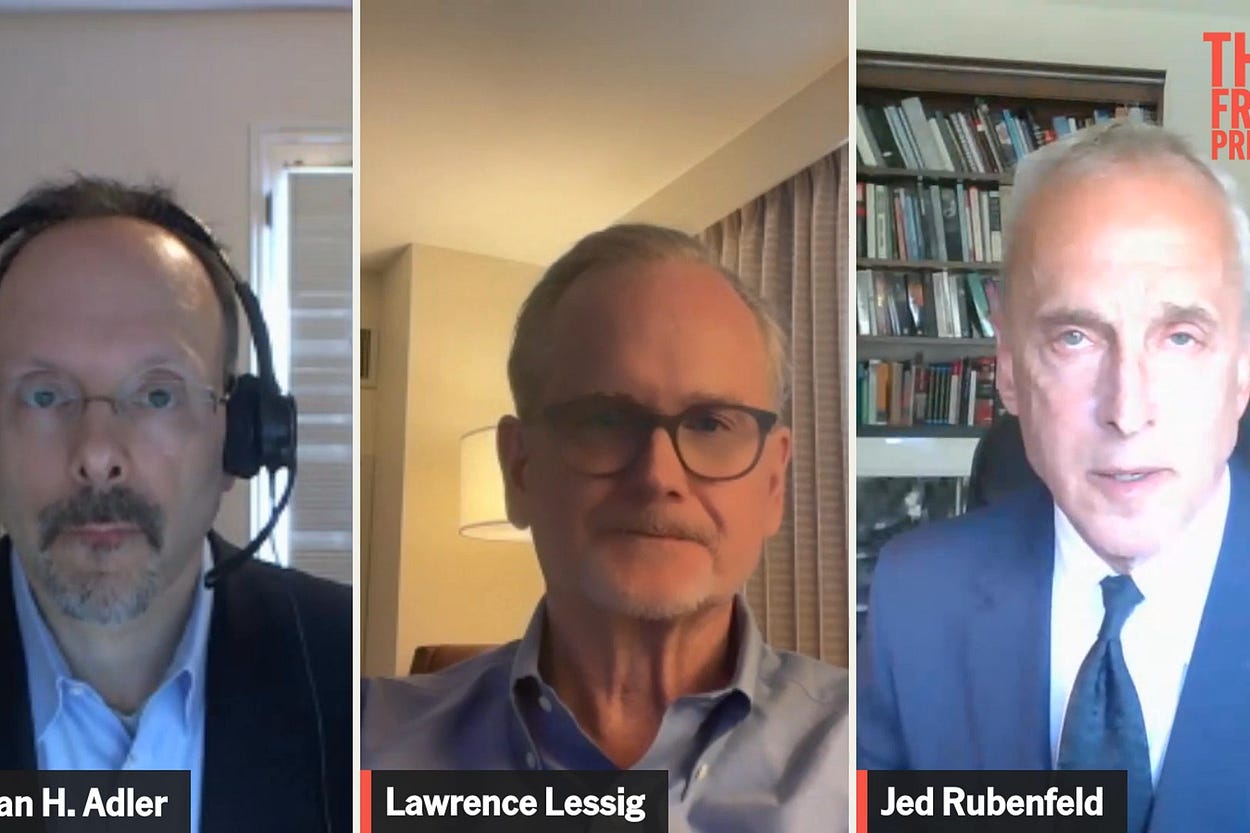

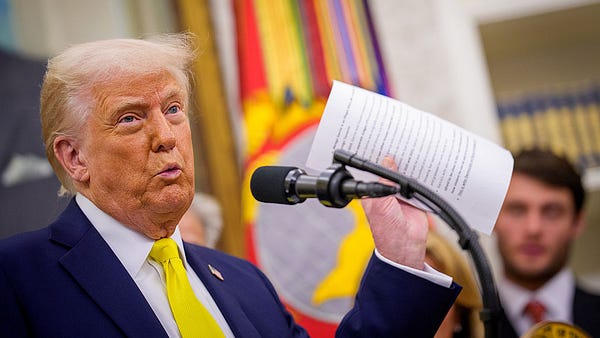

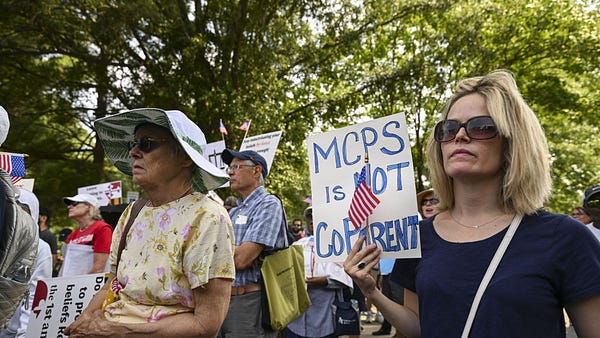

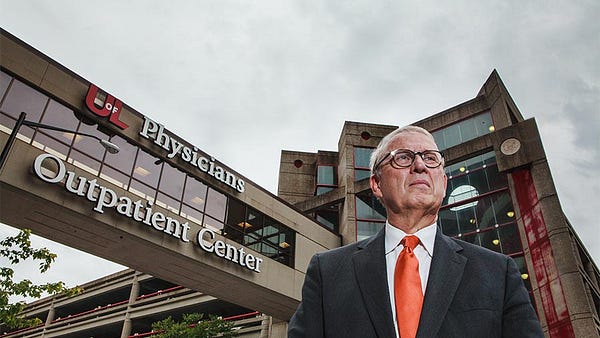

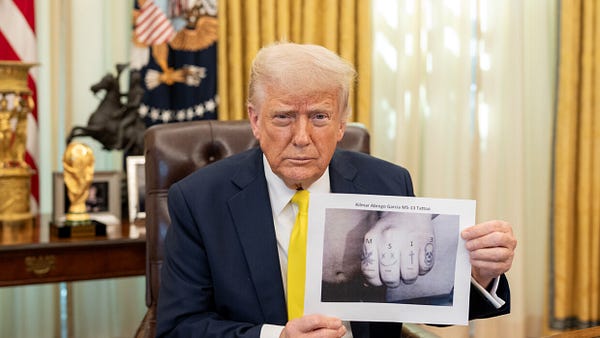

Regardless of any ideological concerns, real or imagined, the revelation that the court is fundamentally corrupt (like the rest of our government) and that several of the justices have absolutely no personal integrity whatsoever is a rather significant development. It turns out the one branch of government that a person could still have some level of faith in is just as much of a circus as the other two branches. Unless major ethics reforms are instituted they have opened the door for the court to participate in completely unbridled corruption.
The Dobbs decision and, more broadly, Thomas' stated dislike for well established precedents is also an extremely significant development. I say this because, 'yunno, it undermines the entire basis of our legal system and stuff. Regardless of the current court's dearth of issues they are ideologically split on, they have opened the door for the court to be a nakedly partisan entity which can reverse course whenever ideology swings the other way. Republicans are all excited about this now, but wait until the court swings liberal and a major gun rights case comes up. We'll be buying our ARs and providing them to the government to grind up every time there's an appointment.
There's also the fact that this decision on gay marriage and free speech is based on a case that does not actually exist. The court allowed a theoretical issue to be decided based on a nonexistent case brought by an activist. We can be sure we will see more of that in the future.
LOL!!!!!!!!!!!!
https://www.google.com/amp/s/nypost.com/2023/07/10/missing-biden-corruption-witness-dr-gal-luft-hit-with-federal-charges/amp/